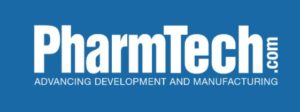Published Articles
Susan J. Schniepp, Distinguished Fellow at Regulatory Compliance Associates, answers some commonly asked questions about aseptic processing and environmental controls.
Q. What is aseptic processing?
A. Aseptic processing is a manufacturing method that can produce product that is absent of bacteria without subjecting the product to terminal sterilization processes.
Aseptic Manufacturing
Many products degrade and become ineffective when subjected to the harsh conditions of terminal sterilization. Aseptic manufacturing allows these products to be produced in a sterile environment, allowing them to maintain their effectiveness while being safe to inject into patients.
Q. What is the difference between aseptic processing and terminal sterilization?
A. The major difference between aseptic processing and terminal sterilization is when the sterilization step occurs in the process. In terminal sterilization, the sterilization is performed after the API, excipients, containers, and stoppers have been assembled.
Sterilization
The final assembled product is then subjected to high heat and/or radiation that renders the product sterile. Terminal sterilization processes are harsh and can have negative effects on product efficacy.
Aseptic Container
For products that can’t withstand terminal sterilization, drug manufacturers employ aseptic manufacturing. The aseptic manufacturing process requires the drug product and any excipients, the container, and the stoppers to be individually sterilized.
Aseptic Clean Room
All must be done before being introduced into the cleanroom or sterile manufacturing core where the final product is manufactured. Additionally, this highly controlled environment is constantly monitored for air quality and potential microbial ingress.
Q. Why must manufacturers establish environmental controls for aseptic processes?
A. Let’s be clear, all drug manufacturing, including solid oral dosage form and terminal sterilization manufacturing are required to have established environmental controls.
Proper Aseptic Technique
This requirement is addressed in global current good manufacturing practices (cGMPs). The purpose of these controls is to prevent product contamination due to unsanitary conditions.
Environmental Controls
The environmental controls to be monitored include, but are not necessarily limited to, air quality including particulate matter, ventilation, temperature, humidity, air pressure, and microbial contamination.
The environment controls have, as expected, stricter limits for aseptic processing manufacturers due to the nature of their business.
Q. What does PUPSIT stand for, and why is it required?
A. PUPSIT is a term used in aseptic processing operations, and it stands for pre-use post-sterilization integrity testing. This testing is performed on the sterilizing filter after it is installed before product manufacturing. Follow up testing occurs again after the product manufacturing is completed.
Filtration Sterilization
The purpose of the pre-test is to ensure that the sterilization and installation process has not damaged your filter prior to the filtration of your product. The purpose of the post-test is to demonstrate that the filter remained intact and undamaged during actual product filtration.
An article published by the Parenteral Drug Association (PDA) states:
“Since 1998, the EU Guidelines to Good Manufacturing Practice: Medicinal Products for Human and Veterinary Use, Annex 1 (Manufacture of Sterile Medicinal Products) or ‘Annex 1’ has contained the requirement for verifying the integrity of a sterilizing grade filter before use and after its sterilization.
The requirement remained in the 2008 revision and in the 2017 draft revision to Annex 1. While not a requirement by the U.S. FDA, EMA inspectors and some PIC/S inspectors have been increasingly expressing expectations for companies to employ this testing procedure”.
The article goes on to explain the concerns that led to the PUPSIT requirement:
“Concerns have been raised that a sterilizing filter could develop certain flaws that would allow microbiological contamination to pass during filtration. The key is that flaws may be blocked or clogged by fluid contaminants or components during the filtration process and remain undiscovered during post-use integrity test. This phenomenon is sometimes referred to as ‘filter flaw masking’”.
Additionally, the article explores the rationale for not employing PUPSIT because of:
“the contamination/product deterioration risk associated with performing PUPSIT may greatly outweigh the risk of product contamination as a result of the masking effect.”
Sterile Filtration
To test a filter during sterile filtration, the sterile filtrate side must be under atmospheric pressure. This requires a fluid pathway to remove any wetting agent.
“The exposure of the downstream portions of the sterile product transport line poses a risk to maintaining the sterility of the filtered product. This, along with other risks, is greater than the remote likelihood of microbiological contamination from a flaw which can be masked during use of the filter that is not detected afterwards.”
PUPSIT
Further, the PUPSIT concept is still actively being debated. The best way to address the use/non-use of PUPSIT in your organization is to make sure you have an appropriate risk assessment in place defending your position.
Q. What makes aseptic drug manufacturing so challenging?
A. Aseptic manufacturing requires highly trained and experienced people to carry out the operations. Even when not in use, special equipment and cleaning procedures must be part of the constant environmental monitoring. Finally, the risk to the product and patients is significant when the aseptic process is compromised.
Article Details

Pharmaceutical Technology
Volume 45, Number 10
Pages: 58, 57
To begin the Regulatory Compliance Associates scoping process today, please enter your information in the blue form below and click the submit button at the bottom of the webpage. You may also email us at [email protected].
Connect with RCA Today
Contact us to learn more about our regulatory compliance experts and how they can help



















